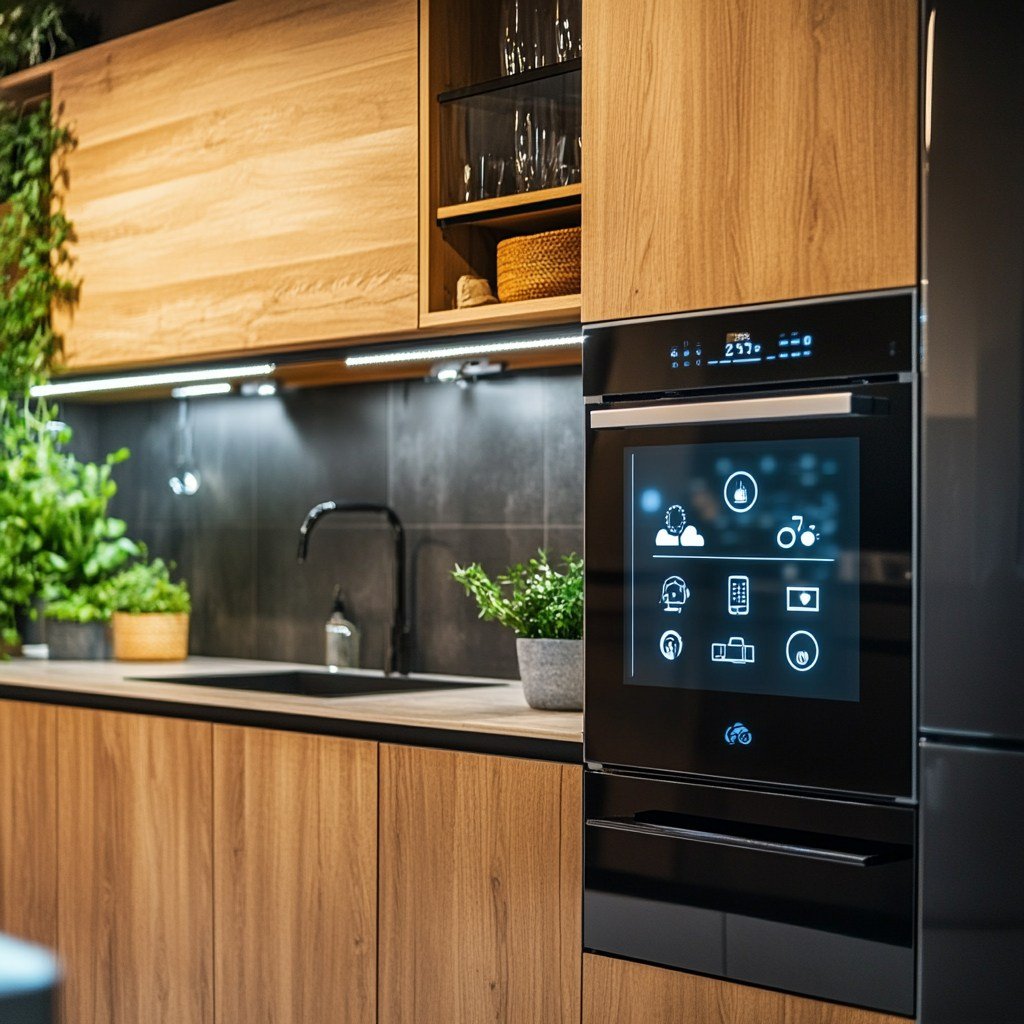In today’s modern homes, smart appliances are becoming more common, offering a wide range of features that promise convenience, efficiency, and improved quality of life. Whether you’re looking at smart refrigerators, washing machines, or ovens, these devices can be controlled remotely, connected to the internet, and often communicate with other devices in your home. But are they worth the investment? In this article, we’ll explore the pros and cons of smart appliances to help you decide if they are the right choice for your home.
The Benefits of Smart Appliances
Enhanced Convenience and Control
One of the biggest draws of smart appliances is the convenience they offer. Many devices can be controlled via smartphone apps, allowing you to start your washing machine from work or preheat your oven while you’re still at the grocery store.
Remote Access and Automation
Smart appliances allow remote access, meaning you can manage them even when you’re not home. For example, a smart fridge might alert you when food is about to expire, or a smart washing machine could finish a load of laundry just as you get home. Some appliances even have self-cleaning or maintenance features, saving you time and effort.
Energy Efficiency
Another major advantage is energy efficiency. Many smart appliances come with energy-saving features that can help lower your utility bills and reduce your carbon footprint.
Usage Monitoring
Some smart devices can track how much energy they’re using, giving you insights into your consumption habits. This allows you to make informed decisions, such as running appliances during off-peak times to save on electricity costs.
Improved Home Security
Smart appliances often integrate with home security systems, providing additional layers of safety. For example, smart ovens can be set to turn off automatically if left on for too long, and smart refrigerators can alert you if the door is left open.
Alerts and Notifications
You can receive real-time alerts if something goes wrong. This is particularly useful for devices like freezers, where a malfunction could mean the loss of valuable groceries. Smart appliances also allow you to lock certain features, preventing unauthorized use.
The Downsides of Smart Appliances
High Initial Costs
One of the biggest disadvantages of smart appliances is the initial cost. These devices are often significantly more expensive than their traditional counterparts.
Investment vs. Savings
Although smart appliances can save you money on utilities in the long run, the upfront cost can be prohibitive for many households. It’s important to calculate whether the long-term savings outweigh the initial investment.
Privacy and Security Concerns
Since smart appliances are connected to the internet, there are potential privacy and security risks. Hackers could theoretically gain access to your appliances, which may allow them to control devices remotely or access personal data.
Data Vulnerability
Many smart appliances collect data about your usage habits, which could be shared with third parties. It’s important to read the privacy policies of your devices and ensure they come with robust security measures, like encryption.
Dependence on Technology
Smart appliances rely heavily on your home’s internet connection and software updates. If your internet goes down, many features may become unavailable, rendering your expensive appliance less useful.
Maintenance and Updates
Regular software updates are necessary to keep smart appliances running smoothly. These updates can sometimes introduce bugs or cause temporary disruptions in functionality. If a manufacturer discontinues updates, your appliance may become obsolete sooner than expected.

Summary Table
| Pros | Cons |
| Enhanced convenience and remote control | High initial costs |
| Energy efficiency and savings | Privacy and security concerns |
| Improved home security | Dependence on Internet and updates |
| Usage monitoring for better insights | Potential data vulnerability |
Smart appliances offer a range of benefits, from energy efficiency and convenience to enhanced security. However, they also have their fair share of drawbacks, including high upfront costs and potential privacy concerns. Before investing, consider your budget, the reliability of your internet connection, and how comfortable you are with sharing your data. For many, the pros of smart appliances outweigh the cons, but making an informed decision is essential.
FAQs
Smart appliances can be worth the investment if you value convenience, energy efficiency, and security. However, the higher upfront cost may not be justified for everyone
Yes, many smart appliances come with energy-saving features that can help lower your utility bills over time.
Smart appliances can integrate with home security systems, offering features like automatic shut-off and real-time alerts for malfunctions or security breaches.
Smart appliances collect data on your usage habits, which may be shared with third parties. Additionally, there is the potential risk of hackers gaining access to your devices.
Some basic functions will still work, but many smart features, such as remote control and real-time monitoring, depend on a stable internet connection.




